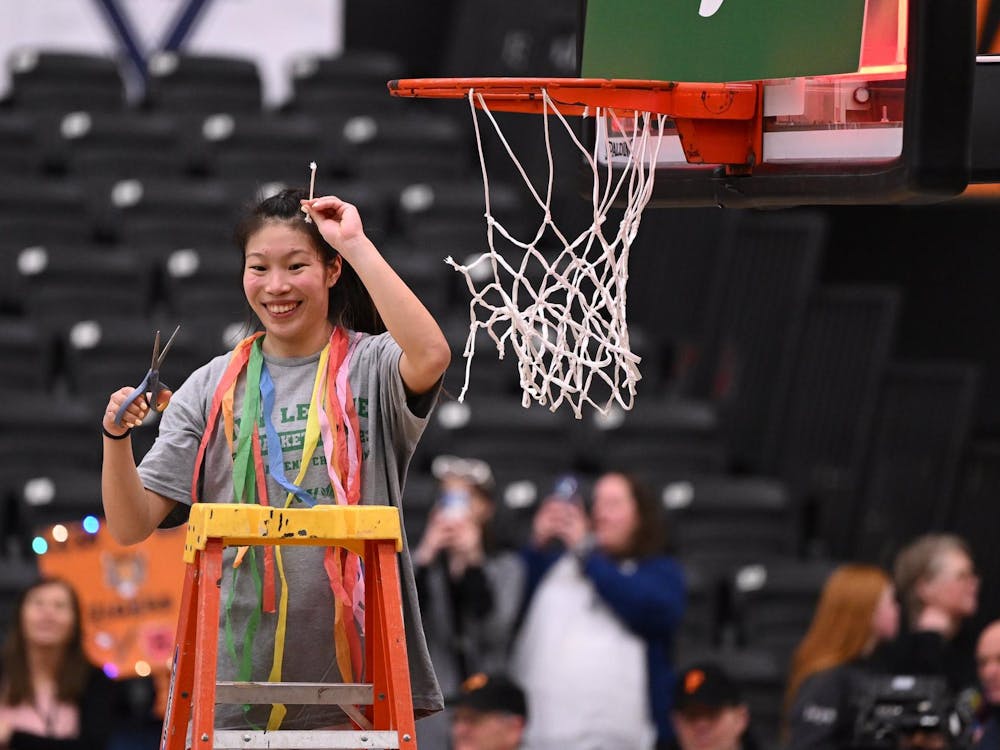On Sunday, Oct. 15, a panel of student group leaders convened to discuss race and identity in the United States before a public live-streaming watch party of Trevor Noah’s New York Times interview on the same topic.
The panel was moderated by 'Prince' Head News Editor Marcia Brown ’19, and featured leaders from several different student groups: Danielle Stephenson ’20 of the Black Student Union, Alis Yoo ’19 of the Asian American Students Association, Yousef Elzalabany ’20 of the Muslim Advocates for Social Justice and Individual Dignity, and Morgan Bell ’19 of Tigers for Israel.
The panelists began by introducing themselves and briefly explaining how their experiences before and after arriving on campus have shaped their perspectives on race and identity in the United States. Stephenson, who spent her formative years attending school in Guam, said that she worried she would be perceived as “not black enough” on campus before accepting that she didn’t need to prove her ethnicity to anyone. Yoo explained that growing up in a community with sharp racial division — her middle school was 70 percent Italian and 30 percent Korean — made the social complications of race prominent to her from a young age. Elzalabany, a Pennsylvanian who was born in Egypt, said that his experiences in the Muslim community have led him to question how Americans construct the concept of whiteness. Bell added that arriving at the University made her explore and confront her Jewish identity in new ways.
Other questions to the panelists dealt with the effect of the Black Justice League’s 2015 protests on campus and the “outsider” perspective Trevor Noah, who is South African, can bring to the conversation on race in the United States.
The panelists also discussed how they want to improve the ways race and identity are approached on campus, within and outside of the student groups they are a part of. Elzalabany said he hopes to continue his work in making the Muslim Students Association welcoming to black Muslims. Yoo added that she wants to work to change the problematic way that East Asians are perceived as a “model minority.” Stephenson wants to use her position as social chair of BSU to make its members feel more accepted. Bell said that she wants to lend a hand to Jewish students who feel uncomfortable at the Center for Jewish Life.
After the panel, audience members viewed a livestream of the New York Times-sponsored event, which featured comedian and “The Daily Show” host Trevor Noah in conversation with John Eligon, a New York Times national correspondent who reports on issues of race.
Noah began by reading a passage from his book, “Born a Crime: Stories From a South African Childhood.” He described the moment when he realized the significance of racial distinctions in post-apartheid South Africa, during a middle-school recess in which black children and white children played in separate groups.
Eligon’s questions dealt with colorism, the distinction between racial issues in the United States and South Africa, the way that Noah approaches race in his comedic work, and controversy over conservative speakers on college campuses.
Noah said that he had benefited from colorism and “light-skin privilege” in South Africa and in the United States, although he has dealt with racism in both countries from a young age.
“Your color would move you up a few rings on the ladder of oppression,” Noah said.
Noah also explained that he had seen the reaction to his race-based comedy change from “recognition to ridicule” as he went from performing for largely black audiences to doing shows for mostly white audiences.
The event ended with video-recorded questions from college students across the country. These questions were about how to have an impactful conversation in today’s political climate, advice for students trying to enter the media field in the face of U.S. disillusion with media, and how Noah’s status as a South African has affected his credibility in the United States.

Eligon closed the conversation by asking Noah if he had a joke about race that would “get him in trouble on Twitter tomorrow.”
Noah replied that he had no way of knowing which of his jokes would make Twitter react.
The event, hosted by the ‘Prince’ and sponsored by the The New York Times, was held in McCormick 101 at 7 p.m. on Sunday.







